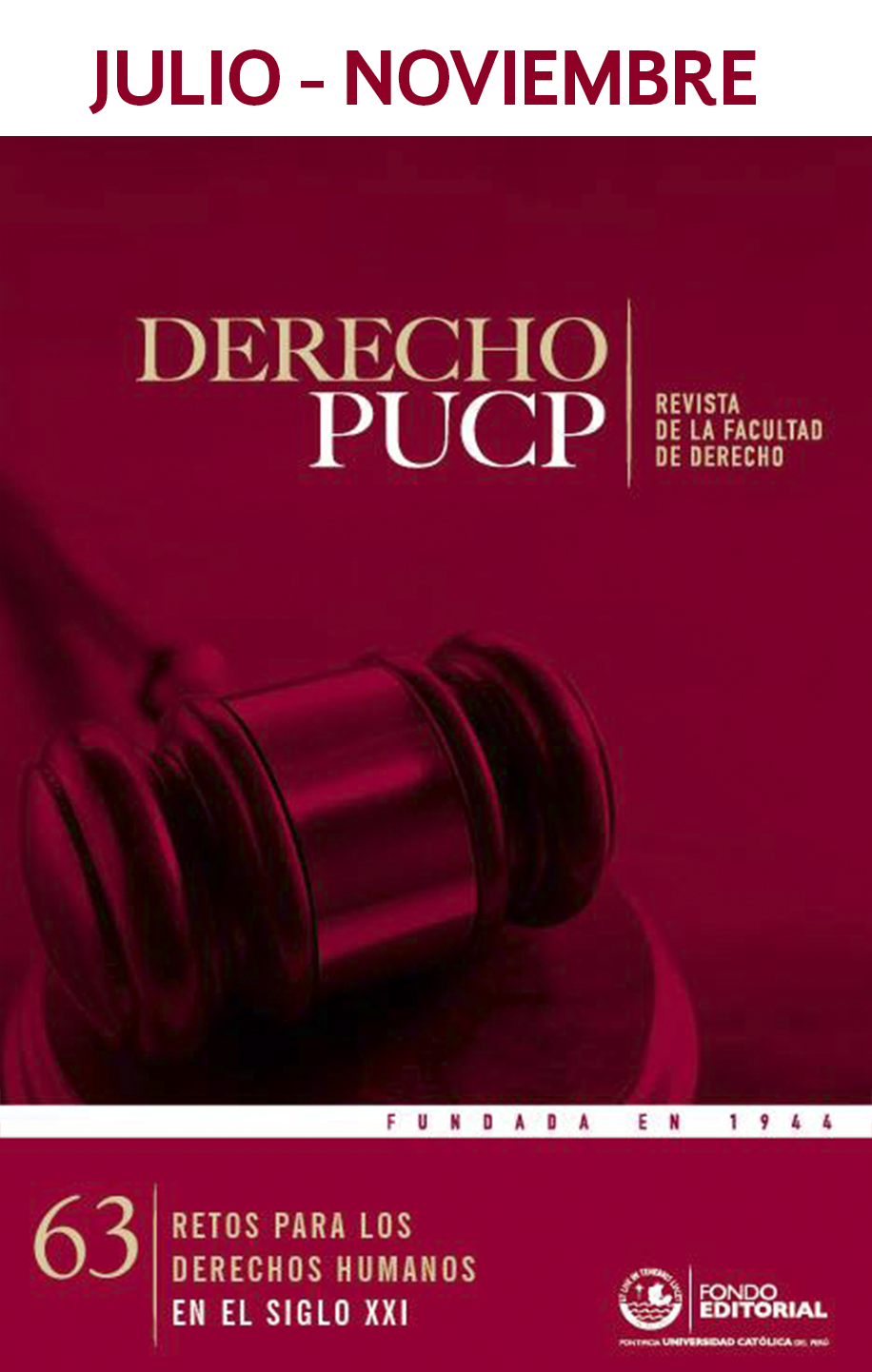Las entregas extraordinarias y el acervo humanitario del Derecho internacional. ¿Abre la nueva administración americana alguna perspectiva de cambio?
DOI:
https://doi.org/10.18800/derechopucp.200902.010Palabras clave:
Derecho Internacional Humanitario, Entregas Extraordinarias, Derecho Internacional, Actos TerroristasResumen
El presente trabajo aborda la figura de las “entregas extraordinarias" desarrolladas por Estados Unidos después de los ataques del 11 de septiembre de 2001. Para ello, la autora presenta un acercamiento sobre la noción de entregas extraordinarias. Luego de ello, aborda la presencia de bases militares fuera del territorio norteamericano, que han permitido a Estados Unidos el desarrollo de su política antiterrorista y analiza las implicancias del Derecho Internacional Humanitario (DIH) en esta llamada «guerra contra el terrorismo». Asimismo, en el marco de los derechos humanos, la autora analiza si son aplicables los instrumentos de derechos humanos en estos contextos y las obligaciones del Derecho Internacional de los Derechos Humanos (DIDH) que estarían siendo vulneradas con la realización de las entregas extraordinarias. Finalmente, se presentan algunas reflexiones en torno al camino que debería seguir la nueva administración, a efectos de compatibilizar su política antiterrorista con el acervo humanitario del Derecho internacional contemporáneo
Descargas
Citas
Adat, L. (2006). Ghost Prisioners and Black Sites: Extraordinary Rendition under International Law. En Case Western Reserve Journal of International Law (Vol. 37, N° 2 & 3).
Aldrich, G. (2002). The Taliban, Al Qaeda, and the Determination of Illegal Combatants. En American Journal of International Law (Vol. 96, N° 4).
Bello, J. et al. (1996). Case Note: Loizidou v. Turkey. En American Journal of International Law (Vol. 90).
CCR. (2005). The Relevance of IHL in the Context of Terrorism. Disponible en http://www.icrc.org/Web/Eng/siteeng0.nsf/html/terrorism-ihl-210705
Dormann, K. (2003). The Legal Situation of Unlawful/Unprivileged Combatants. En International Review of the Red Cross (Vol. 85).
Fisher, Louis. (2008), Extraordinary Rendition: The Price of Secrecy. En American University Law Review (Vol. 57) pp. 1418-1420.
Fitzpatrick, J. (2003). Speaking Law toPower: The War Against Terrorism and Human Rights. En European Journal of International Law (Vol. 14).
Fitzpatrick, J. (s/f). Renditions and Transfer in the War Against Terrorism: Guatánamo and Beyond. En Loyola of Los Angeles International and Comparative Law Review (Vol. 25, N° 3).
Fleur, J. (s/f). Guantánamo Bay and the Annihilation of the Exception. En European Journal of International Law (Vol. 16, N° 4).
Gill, Terry y Elies Van Sliedregt. (s/f). Guantánamo Bay: A Reflection on the Legal Status and Rights of Unlawful Enemy Combatants. En Utrecht Law Review (Vol. 1, N° 1).
Hessberger, F. (2005). Bad Torture – Good Torture? What International Criminal Lawyers May Learn from the Recent Trial of Police Officers in Germany. En Journal of International Criminal Justice (Vol. 3, N° 5) pp. 1059-107.
Meron, T. (1989). Human Rights and Humanitarian Norms of Customary Law. Clarendon Press.
Neuman, G. (1996). Anomalous Zones. En Stanford Law Review (Vol. 48).
Satterthwaite, M. (2006). Extraordinary Rendition and Disappearances in the War on Terror. En Gonzaga Journal of International Law (Vol. 10).
Satterthwaite, M. (2006). Render Meaningless: Extraordinary Rendition and the Rule of Law. (Paper 43) New York University Public Law and Legal Theory Working Paper.
Scheffer, D. (s/f). Hamdan v. Rumsfeld: The Supreme Court Affirms International Law». Jurist Legal News and Research. En <http://jurist.law.pitt.edu/forumy/2006/06/hamdan-v-rumsfeld-supreme-court.php>
Steyn, J. (2004). Guantanamo Bay: The Legal Black Hole. En International and Comparative Law Quarterly (Vol. 53).
Weissbrodt, David y Amy Bergquist. (2006). Extraordinary Rendition and the Torture Convention. En Virginia Journal of International Law (Vol. 46).
Woodliffe, J. (1992). The Peacetime Use of Foreign Military Installations under Modern International Law. Dordrecht: Martinus Nijhoff Publishers.
Descargas
Publicado
Cómo citar
Número
Sección
Licencia
Derechos de autor 2016 Derecho PUCP

Esta obra está bajo una licencia internacional Creative Commons Atribución 4.0.




